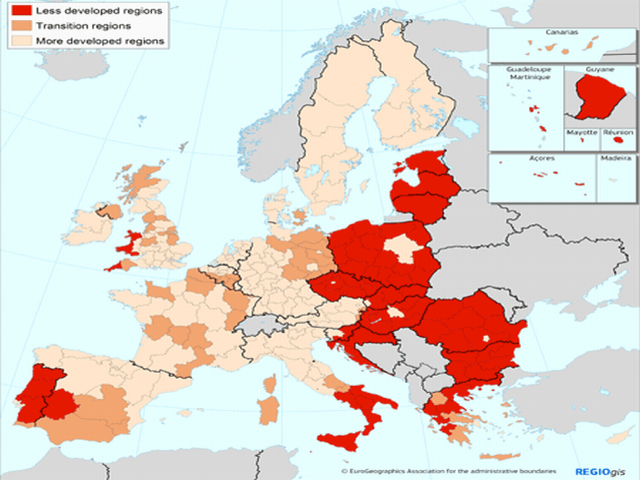The absorption of European funds in Romania
With 74% at the end 2015, Romania has the lowest absorption rate of EU funds in the European Union.

Mihai Pelin, 02.03.2016, 14:16
After joining the European Union in 2007,
Romania started receiving European funds for development. In theory, the money
should be used to bridge the economic gap between Romania and the more
developed western countries. 19 billion euros were available to Romania between
2007 and 2014, of which it has only absorbed only 14 billion. Moreover, the
money was not used for investment in critical projects such as infrastructure,
education and healthcare, as every new government has promised.
The country’s sluggish legislation and the
frauds in the management of these European projects have delayed the absorption
of European funds, the minister for European funds Aura Raducu recently said. During a debate in
Parliament, she announced that one of the payments included in the Sectoral
Operational Programme Human Resources Development was suspended due to
irregularities identified between 2012 and 2014. The Romanian minister said the
absorption rate was below 60% when she took office in November 2015 as a member
of the new technocratic government headed by Dacian Ciolos. The absorption rate
is expected to rise in the future by also including some of the projects funded
by the state. Aura Raducu explains:
This is a unique opportunity to raise the
absorption rate to 100%. There are some problems, though, namely that most
projects funded by the state unfortunately do not comply with the legal
requirements under national law, in particular the regulations regarding public
purchases, environmental certificates and building certificates.
In response, the former minister for European
funds, the Social Democrat senator Eugen Teodorovici, said the ministry for
European funds should concern itself instead with urgent payments and with the
launch of new projects. He called on Aura Raducu
to consider her resignation if she was unable to ensure the management of
European funds. Eugen Teodorovici:
When you took office, the absorption rate of
European funds stood at 59%. You are saying now that the absorption rate has
reached 75% and that you will receive more than 700 million euros from the
European Commission. Translating this sum into percentages you will see that
you will not reach the absorption rate you mentioned.
If we look at the absorption rate of European
funds in Romania’s neighbouring countries, things are a little better there. At
the end of 2015, Hungary had spent 87% and Bulgaria 77% of the money allotted
to them. After falling behind in its absorption rates for seven years in a row,
Romania is now faced with a bigger challenge: by 2020 it has to come up with
viable projects to attract around 35 billion euros.






























